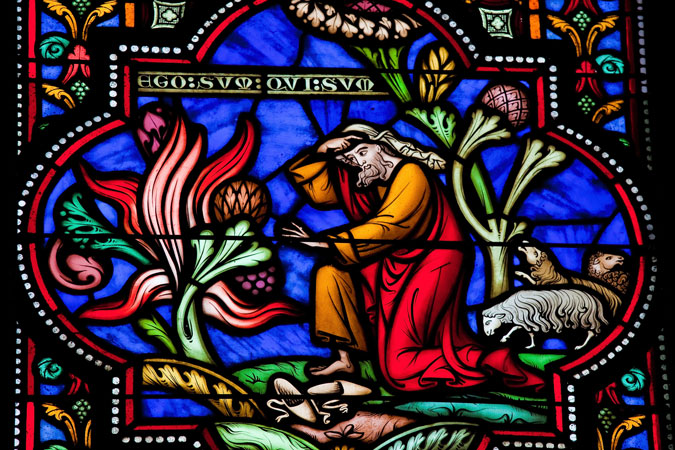Not too long ago, there was a TV commercial for a mobile phone that showed a young couple about to enjoy a romantic dinner at a restaurant. As the woman is talking, she sees her date look down toward his lap. “Did you just check the game on your phone?” she asks. He quickly denies it saying, “What am I, like some kind of ‘summoner’ who can just summon footage to his phone like that? C’mon.” She starts to accept his explanation and explains that she is probably just a little sensitive when he blurts out, “ooh!” followed a few seconds later by, “Yes!” while quickly raising his eyes each time with an innocent look on his face to meet her skeptical gaze. The commercial concludes with the claim that only this provider lets you download 3 times faster. You can be sure that this will be the last date these 2 will ever go on because no one seeking a relationship is going to settle for divided attention.
Ultimately, this is what Jesus is asking of us: our undivided attention. He is seeking a deeper relationship with us and knows that this will not happen if our attention is divided. In an exclusive relationship, each person wants and needs to know that they are the object of their partner’s attention and affection, otherwise, the relationship cannot grow. While Jesus doesn’t need our attention and affection, he freely offers his and knows that WE will be better off if we offer ours to him. This is why, in Scripture, God refers to himself as a “jealous God” (Ex 20:5; Gal 5:20) – not because he himself is envious (the sinful desire for something that is not rightly ours) but because he is possessive of us (since we truly belong to him) and he knows that a relationship will not grow if attention is divided. It is for OUR sake that he is jealous!
James Robison explains:
“God is not jealous of us, He is jealous for us in the sense that He does not want to see anything foolishly captivate us and take us as prisoners. God does not want you to miss the supernatural fulfillment that He freely offers. It is like a wife being jealous not because her husband associates with other women, but because she knows that he might be captivated by a false relationship and taken away from his first love and his family. Godly jealousy is an expression of love and concern for our best interests — not a petty human emotion of fear, but concern that we might miss the very essence of life.”





Great answer to a confusing verse about God. Makes sense and it’s actually very comforting to know that our Father is possessive of our time with Him.
In the early days of Israelite theology, they may have accepted the existence of other gods, but God was the one and only for them. They were married to Him. So they could apply the human emotion of jealousy to their image of their God.
By the time of Jesus, His teaching on this matter is among the saying in the Sermon on the Mount: “No one can serve two masters. Either you will hate the one and love the other, or you will be devoted to the one and despise the other. You cannot serve both God and money. (Matthew 6;24).
This is His way of reflecting on the First Commandment for his contemporaries who took monotheism for granted. We still think of the allure of material possessions as temptations to a quasi-idolatry.